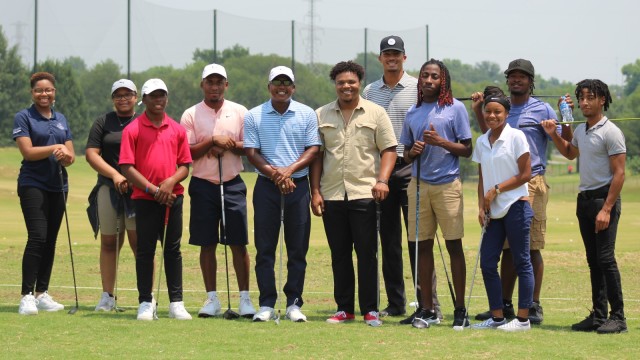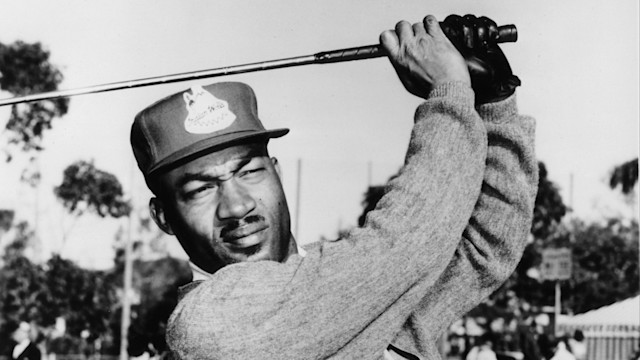Game Changers
Juneteenth Reflections: How Three Black Young Professionals Are Changing Golf's Narrative
By Hayden Lewis, PGA
Published on
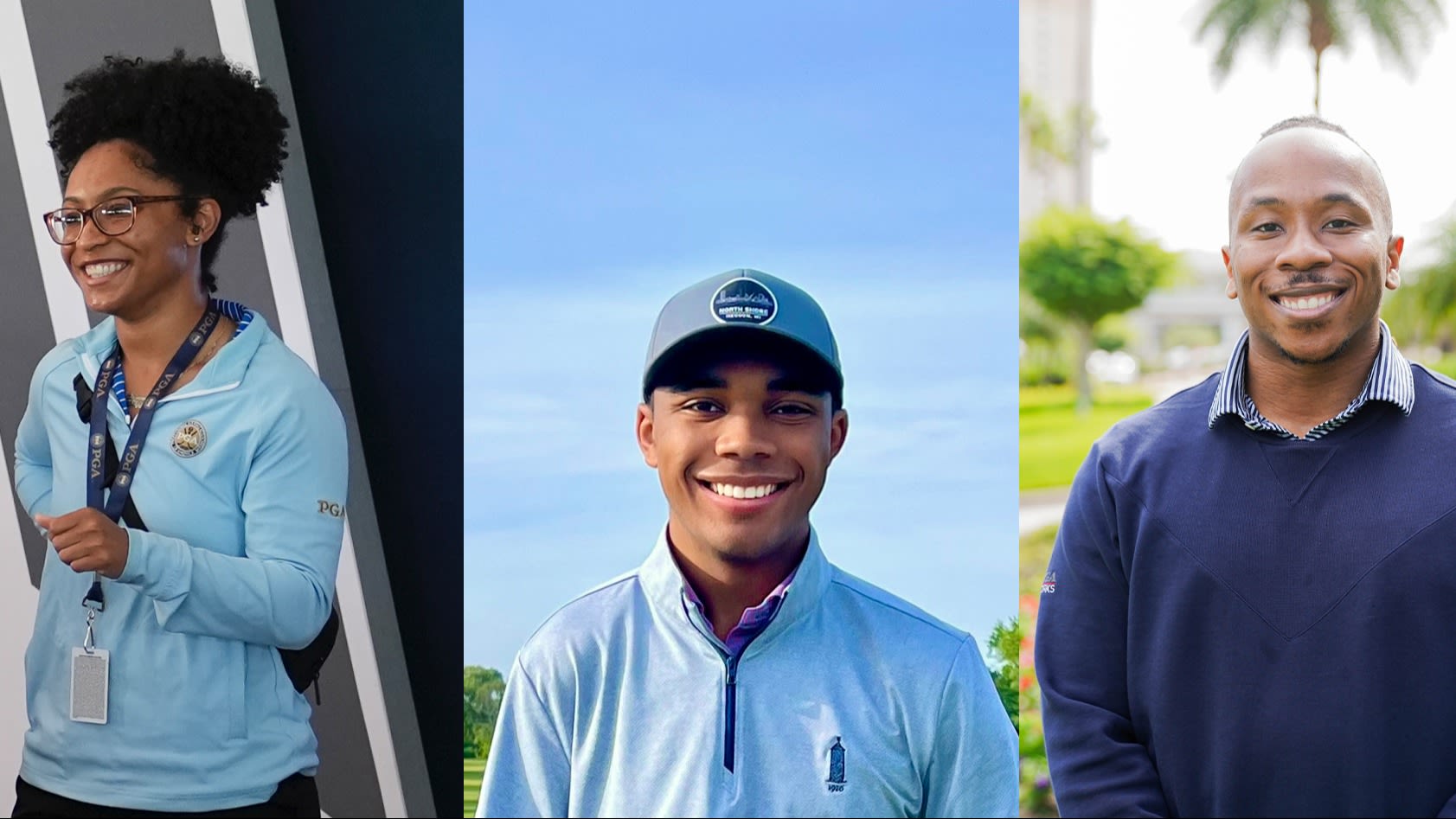
Juneteenth marks a profound moment in American history – the end of slavery in the United States.
As the nation reflects on this pivotal day, it is crucial to understand how its legacy reverberates throughout industries, neighborhoods, communities, and other sectors that we are connected to – including the golf industry. Juneteenth not only commemorates freedom and resilience, but also serves as a reminder of the ongoing journey toward equality and inclusion.
In golf, this journey has been marked by significant strides toward breaking down barriers and fostering diversity, yet there's still much work to be done. From grassroots programs aimed at introducing the game to underrepresented communities to the rising presence of Black PGA of America Golf Professionals, executives, and leaders – Juneteenth offers a moment to celebrate progress and galvanize further action towards a more inclusive future for the game we all love.
Golf, however, certainly has a past that, at times, can be tough to revisit. PGA WORKS is on a mission to reimagine this narrative. Two of the program’s most influential connecting points for students and young leaders is the PGA WORKS Fellowship and the John & Tamara Lundgren PGA WORKS Scholarship.
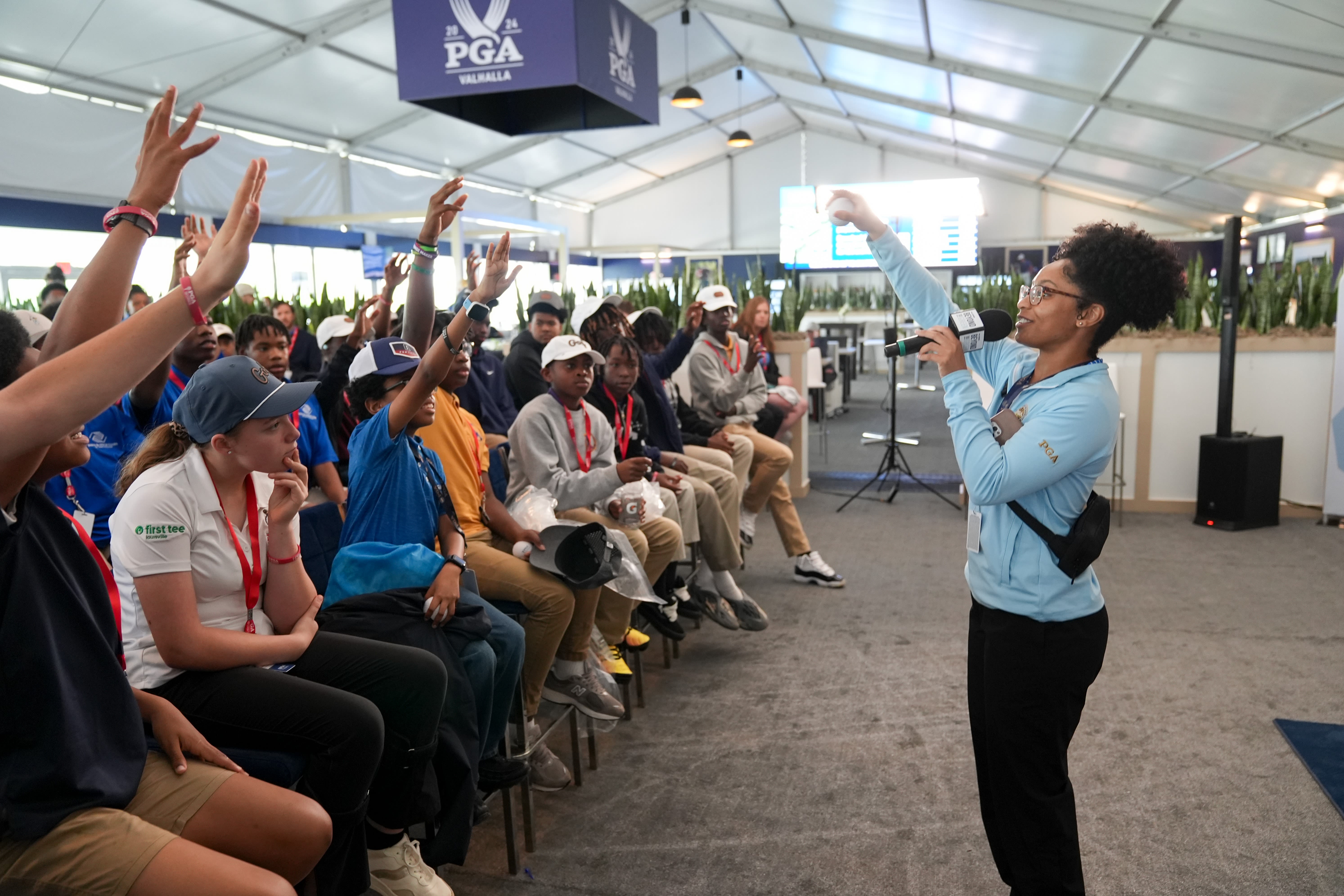
Iyannei Miranda at Beyond the Green during the PGA Championship.
To get a better sense of PGA WORKS' impact, we recently sat down with Fellowship alumni, Cameron Jones and Iyannei Miranda, and current WORKS Scholar, Joseph Fenceroy, who is pursuing his PGA of America Membership at Coastal Carolina University’s PGA Golf Management Program.
At 19 years old, Joseph’s love of the game was passed down from his grandfather, to his father and then to himself. Born with a brachial plexus injury causing him to have limited motion in his right arm, he didn’t want this to define who he was on the golf course.
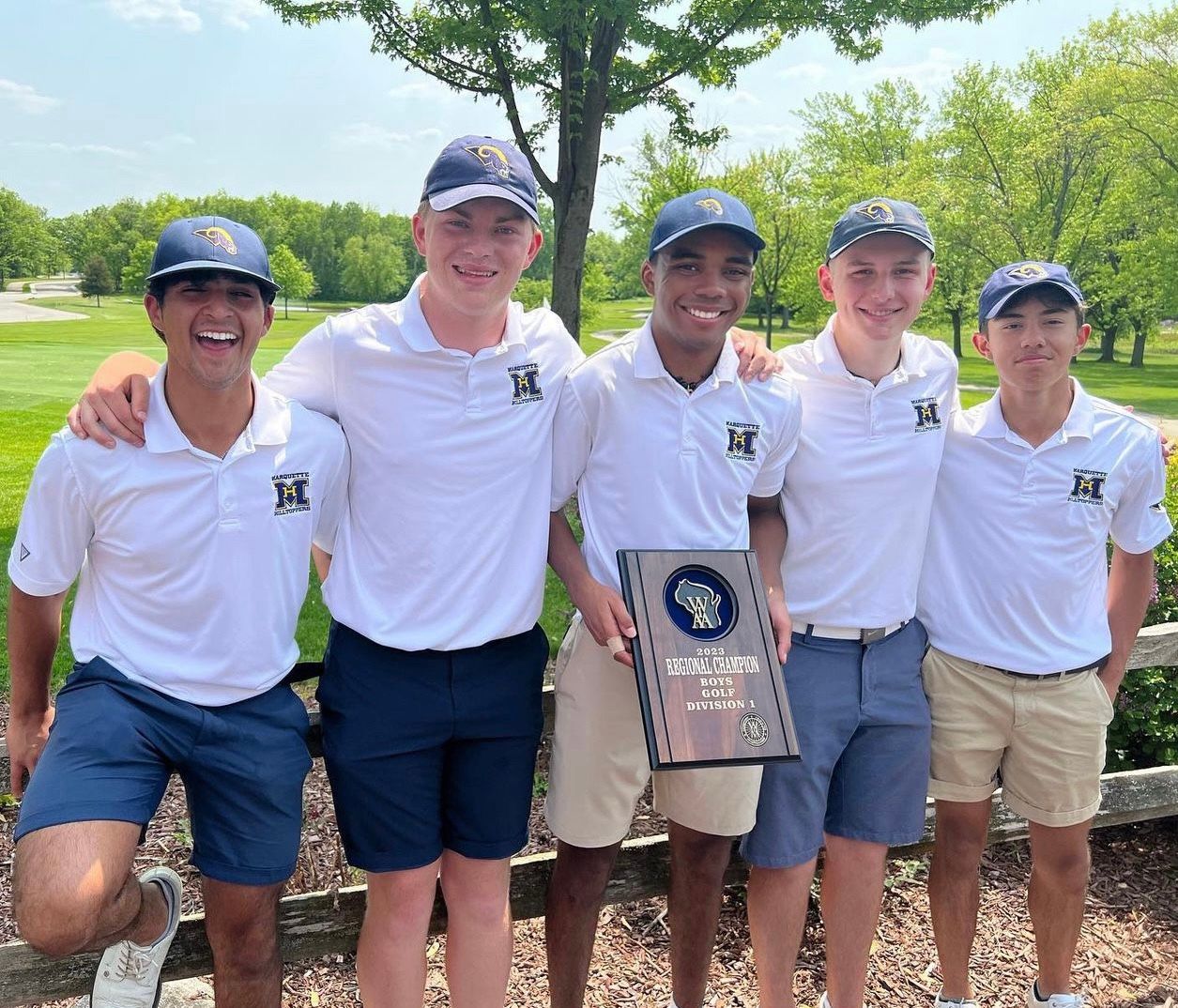
Joseph Fenceroy (middle) with his high school golf teammates in Wisconsin.
“Legendary player, Calvin Peete had a similar injury and led the PGA TOUR in driving accuracy for ten straight years,” notes Joseph. “In the same way, I didn’t want this injury to define or stop me from what I wanted to accomplish – and it hasn’t.”
For Cameron Jones, golf was never a sport that piqued his interest – saying he was excelling at all the other sports, so why would he pursue golf?
“I knew about golf basically through Tiger Woods and remember driving the golf car with my dad and uncles whenever they would go play,” says Cameron. “I will say, to me, it just seemed more like an old man’s sport, and I didn’t see much connection through it.”
Cameron pursued a dual-degree program at Texas Tech University that allowed him to study sports management and earn a legal background. As he was transitioning from school, he knew he wanted to stay around sports. Golf popped up on his radar, and he was referred to the PGA WORKS Fellowship with the Colorado PGA Section.
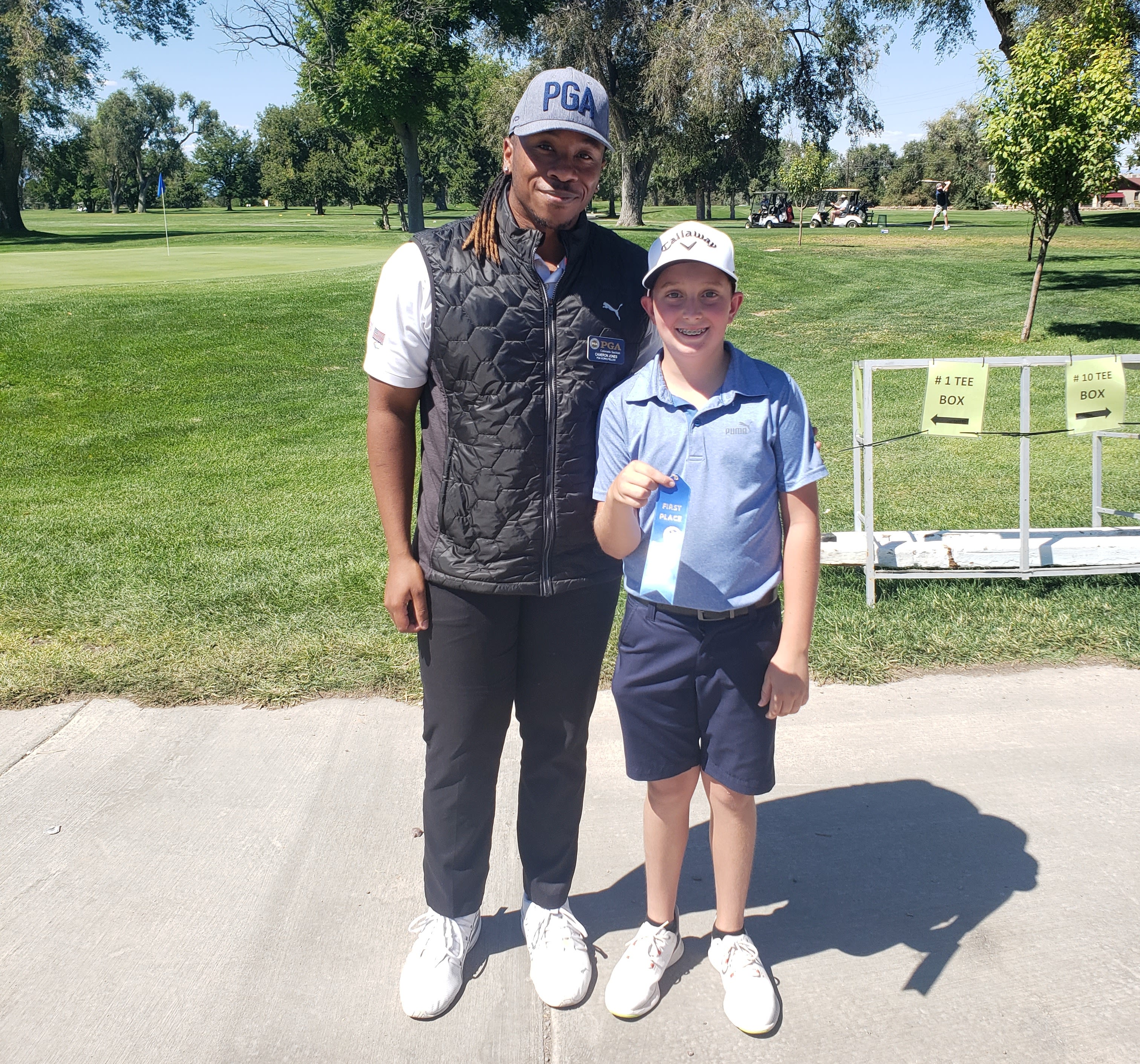
Cameron Jones with a Colorado PGA junior golfer during an event.
Now, as a PGA of America Membership Representative, Cameron is helping bridge those connections in golf with the very people who are on the frontlines for growing the game in communities across the world.
Similarly, Iyannei sought opportunities in other sports during her undergraduate and graduate years at the University of Central Florida, and it wasn’t until she ran across the PGA WORKS Fellowship in the North Florida PGA Section that she realized golf was calling her name.
“I thought it was such a unique opportunity and something that I wouldn’t normally go after,” recalls Iyannei. “From the moment I got offered and accepted the Fellowship, golf has seemingly opened a whole world of opportunities I didn’t know existed.”
Iyannei now helps lead the very program which gave her a foot in the door to golf as the PGA WORKS Program Coordinator.
We got to catch up with these three incredible individuals and learn more about their journeys while reflecting on the indelible and growing impact Juneteenth has on golf
Iyannei – now that you have seen the WORKS Fellowship through two different lenses, how do you feel the Fellowship is helping shape communities within golf?
Iyannei Miranda: I think it’s really unique and I feel very fortunate that I get to work at the PGA of America, but specifically for the very program that introduced me to this whole world of golf. I feel like the word ‘opportunity’ gets thrown around a lot, but truly the PGA WORKS Fellowship is opening those doors for so many just like it did for Cameron, myself and so many others.
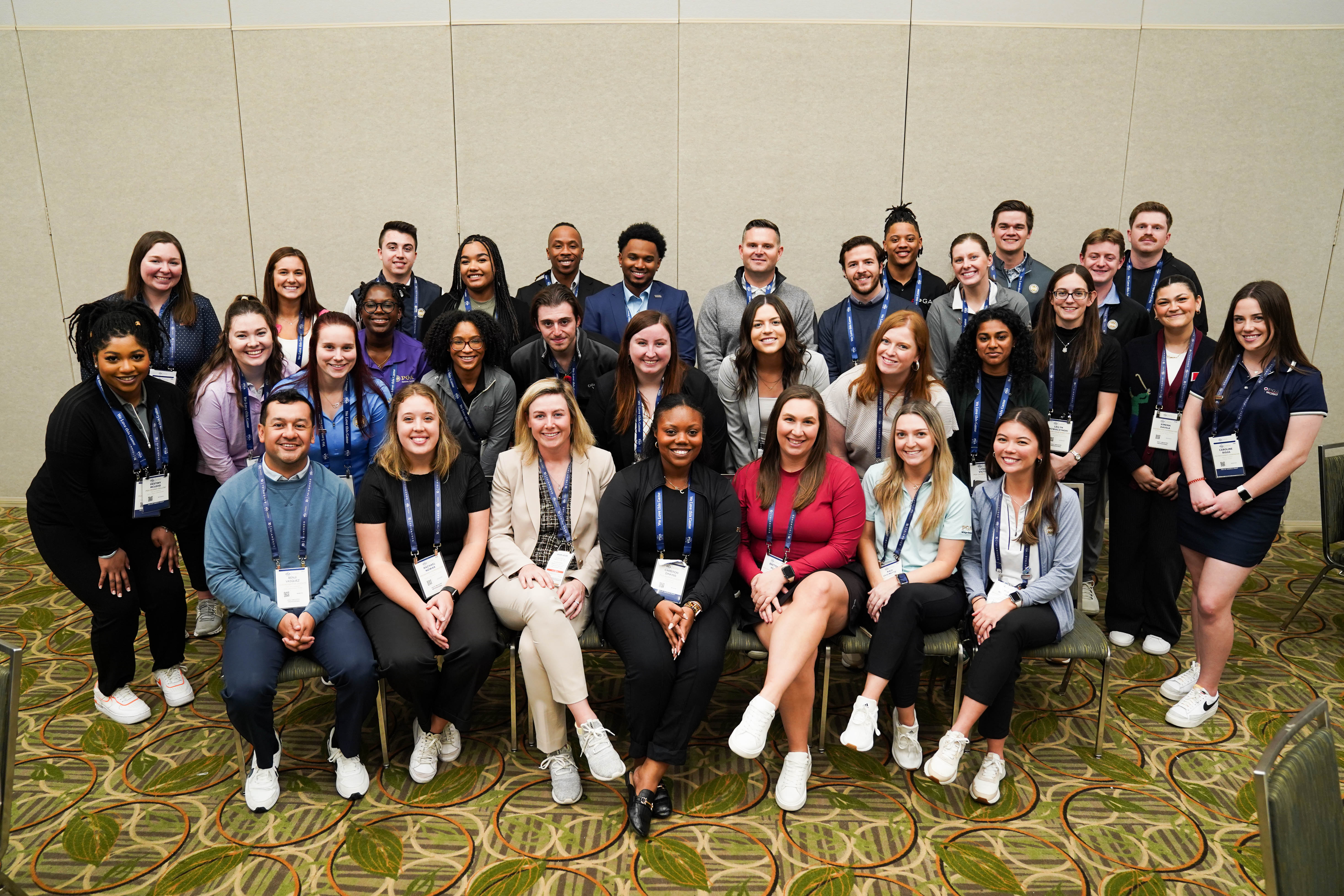
PGA WORKS Fellows at the PGA Show.
This year, we will have 30 Fellows in PGA of America Section Offices throughout the United States, and it just goes to show that more and more individuals who come from different communities are finding their way to golf and seeing themselves in it. It allows young leaders to develop a unique skill set that not a lot of other sports offer. To me, it was the perfect amount of time to really build confidence in myself and flourish while building towards that next step.
Joseph – as a PGA WORKS Scholar, can you talk about what that means to you and the impact you hope to have on the golf industry when you become a PGA of America Golf Professional.
Joseph Fenceroy: It really is a full circle moment for me being awarded the Scholarship and I would not be here without the support of my family and community. I think back to attending the Ryder Cup at Whistling Straits and being a part of the PGA WORKS Beyond The Green – a career exploration event held in conjunction with the championship.
"I believe that we are all born with a very significant purpose and I’m very excited for what the future holds not only for our country, but for minority golf, too. Juneteenth plays a role in that story."
Joseph Fenceroy
I remember thinking to myself how cool it is seeing all these other individuals who look just like me and want to be a part of this great game. That moment really lit a spark for me to want to carry on the values instilled from the game and made me want to pursue a career in golf. When I become a PGA of America Member, I just want to pass on those same values that I’ve learned from the game and lead in a way that inspires others like me.
Cameron – As a new teammate on the Membership Team here at the PGA of America, talk a little about your perspective on where the game is heading for that next generation leaders and golf professionals?
Cameron Jones: When I first started as a Fellow, I quickly realized I was coming into the game at a very important time in golf. I feel like we’re in a very transitional and, sort of, a turning point in the game. Coming from a lens where my generation views the game – more from a social media, mainstream perspective – there are a lot of big names and influencers who are spending their time on the golf course.
There’s more of a diverse audience finding the game and picking it up as a hobby. For lack of better words, golf is certainly becoming “cool.” I think for the next generation, there is a big opportunity to take this momentum golf is seeing to a whole new level and opening the door for a new crop to see golf as more than a game, but also as a possible career path.
How does Juneteenth resonate with you all as we reflect on such a pivotal time in our country’s history? In your eyes, how should it serve as a reminder to the golf industry of the ongoing journey toward equality and inclusion?
CJ: For me, Juneteenth really is just that – a reminder and a way to also acknowledge that 1865 really wasn’t that long ago in the grand scheme of time. Even after the end of slavery, folks still endured the Jim Crow era down south – and these were the lingering effects of a much larger, ongoing conversation and strife. Whether it's in our neighborhoods, cities, or nationwide, we have to come to the realization that there are still conversations to be had and that it takes all of us to change that narrative that has plagued our country’s history in the past.
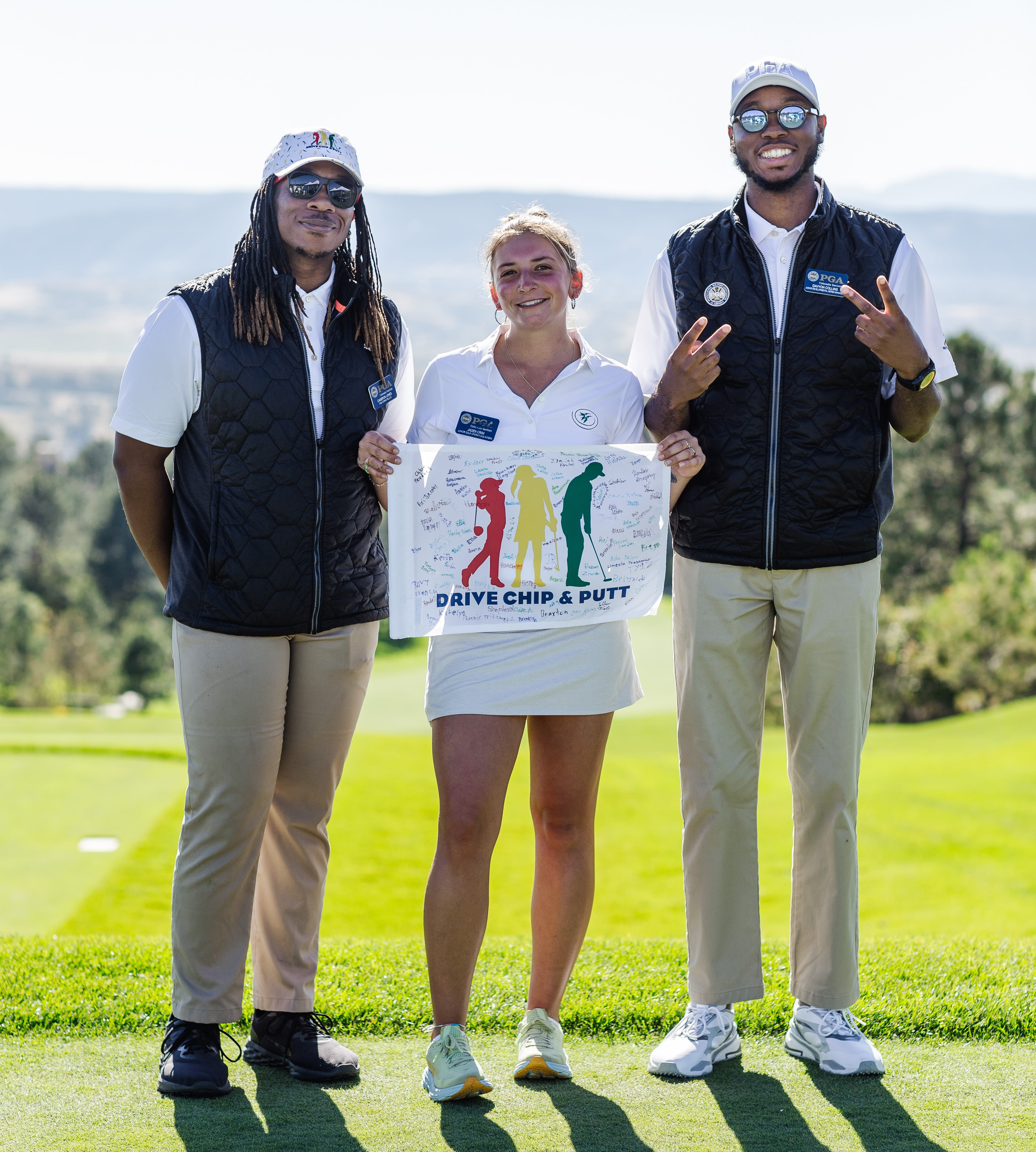
IM: Piggybacking off of Cameron, a little known fact is that Texas was actually the last confederate state to end slavery – two years after emancipation was declared in confederate states. From the lens of golf when we think about this, considering now that the Home of the PGA of America is in Frisco, Texas, it just makes the conversation around diversifying the game that much more important. I think it’s a reminder that golf can and should be used as a tool to shift the lens of diversity, and how we can push the boundaries because of the impact it carries across the world. All of the values we carry in ourselves, within and beyond the PGA of America – it all counts towards making our world a better place.
JF: I know it’s a story that is not always the easiest to talk about, but I do believe we have come a long way and made a lot of progress to get to where we are today. I think one of the best quotes that can resonate for all of us everyday – not just on Juneteenth – is from Martin Luther King, Jr. who said something to the effect of, “I hope we will one day live in a nation where others will not be judged by the color of their skin but by the content of their character.” I believe that we are all born with a very significant purpose and I’m very excited for what the future holds not only for our country, but for minority golf, too. Juneteenth plays a role in that story and will continue to play a role for generations to come.
PGA WORKS is a strategic initiative, designed to diversify the golf industry’s workforce. Funded by the PGA of America REACH Foundation, the 501(c)(3) charitable foundation of the PGA of America, PGA WORKS leverages fellowships, scholarships, career exploration events, and the PGA WORKS Collegiate Championship to inspire and engage talent from diverse backgrounds to pursue key employment positions across the golf industry. Learn more at pgareach.org.

